A time to build and a time to refrain from building
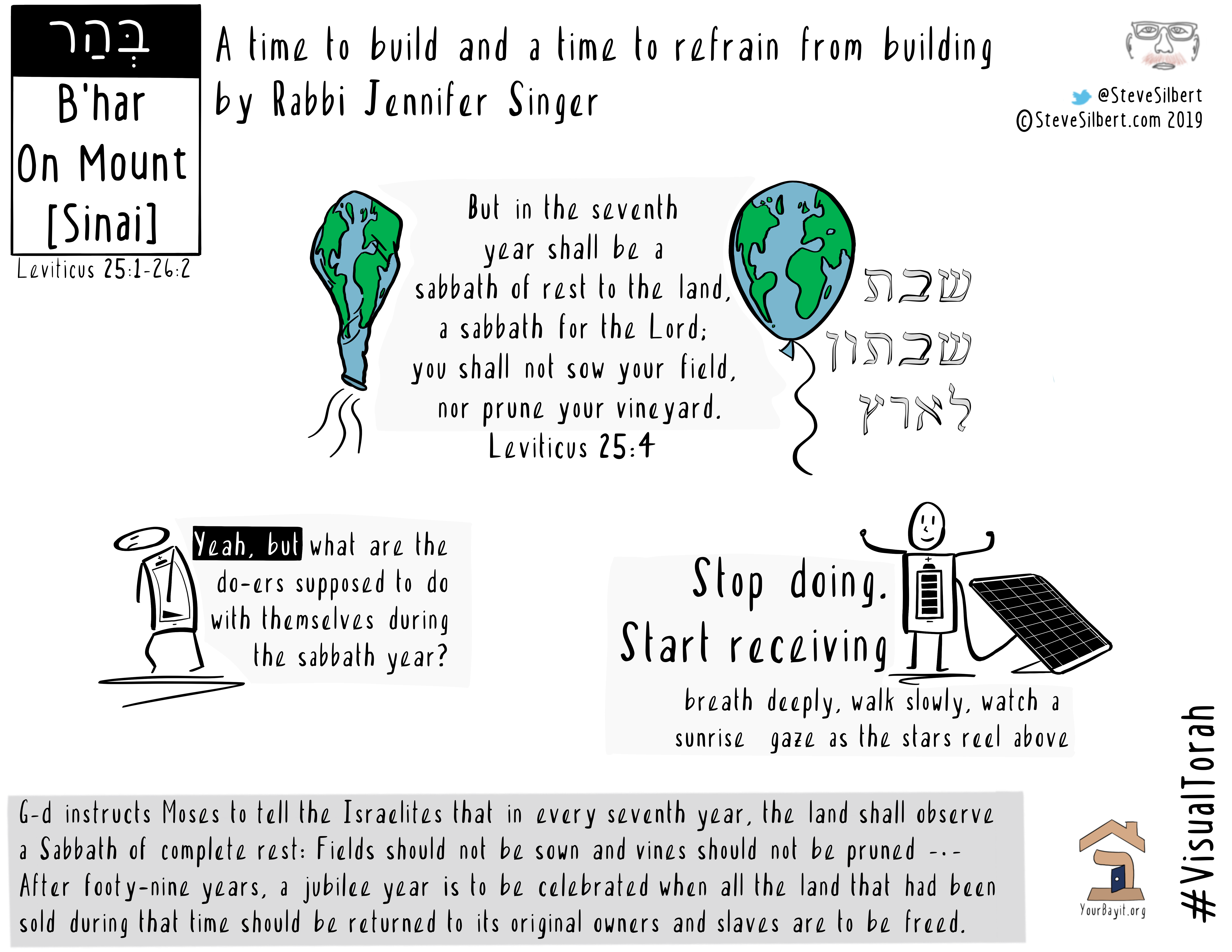
Part of a yearlong Torah series on building and builders in Jewish spiritual life.
In our fast-paced world it’s rare to take a sabbatical. A week’s vacation here and there is more the norm. But a full year? That’s an awfully long time.
For a farmer, leaving the land fallow for an entire year must feel like a lifetime. And yet that’s exactly what the Torah asks; “When you enter the land that I assign to you… in the seventh year the land shall have a sabbath of complete rest.” No planting, no pruning, no reaping.
The Torah assures us that even without human intervention, the land will provide enough for everyone to eat, both human and beast. But there’s one thing the Torah doesn’t say: What are the farmers and the builders and the do-ers supposed to do with themselves during the sabbath year?
Perhaps the answer is that they’re not meant to do anything at all. Or at least, nothing productive. Because sometimes stopping completely is the path to our most creative moments. And a week’s vacation simply isn’t long enough to do the important work of truly resting and recharging.
This week’s Torah portion is called B’har, “on the mountain,” and it begins with an anomaly. The opening sentence is a deviation from the normal introduction, which generally reads something like, “And God spoke to Moses, saying…”
This time, two words are inserted into the standard sentence, so it reads: “And God spoke to Moses on Mount Sinai.” The addition seems unnecessary, since we already know that Moses and God are together on the mountain.
Calling our attention to the mountain is a reminder that Moses is in an elevated place, both physically and spiritually. He has left everything and everyone he knew below, and has gone to a high place, where his sole task is to listen to God. Later, he will transmit all that he heard to the people below. But for now, he is not responsible for doing, only for receiving.
We live in a world that seems to function at a breakneck pace. We hurry from here to there, hurling ourselves down highways at speeds that were once unimaginable, yet today are routine. We take vacations that are filled with sights and sounds, and return home elated by the wonderful experiences but often so tired that we jokingly say we need a vacation to recover from our vacation.
We construct lives of perpetual motion for ourselves and our families. We build an existence so structured around accomplishments that we become humans-doing instead of humans-being. The lesson of B’har is to stop building, stop doing, and simply be.
From the heights of the mountain we can look at our lives with fresh eyes and understand anew the injunction from Ecclesiastes that there is a time to build and a time to refrain from building. Even as Torah guides us toward creating a better world, Torah also teaches us to abstain from building and give ourselves unstructured time for reflection and rejuvenation.
A year is a very long time. Even the ancient rabbis chafed at the thought of letting the land and people rest for an entire year, and they dreamt up ways to work around it by allowing just one field to represent an entire farm. But I wonder if we are short-changing ourselves by abbreviating our times of rest.
What would it do for our psyches if we took “a sabbath of complete rest” that lasted more than 25 hours? More than a week? Or a month? If we put down our tools and set aside our plans, put away our cell phones and computers, our radios and TVs? What if instead we breathed deeply, walked slowly, observed the sun as it rose and set, and watched in awe as the stars reeled above?
If we gave ourselves the chance to visit the mountain, perhaps we could return refreshed, both physically and spiritually, ready to embark on the next stage of our lives with a renewed sense of purpose, ready to pick up our tools and begin once again to build the future.


By Rabbi Jennifer Singer. Sketchnote by Steve Silbert.

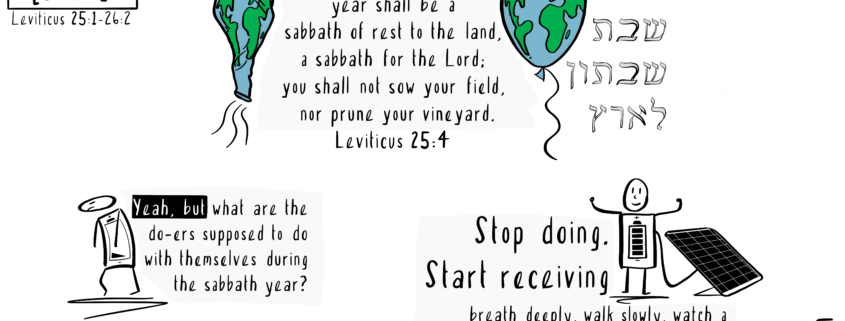
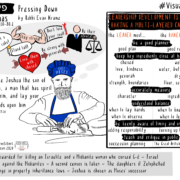

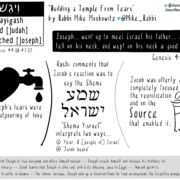
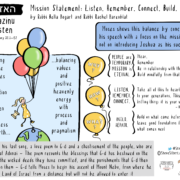
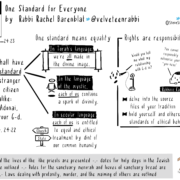
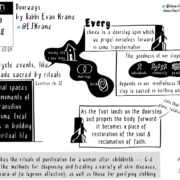


Trackbacks & Pingbacks
[…] Here’s Torah commentary at Builders Blog (a project of Bayit: Building Jewish), this week written by Rabbi Jennifer Singer, and sketchnoted as always by Steve Silbert: A Time to Build and a Time to Refrain from Building. […]
Comments are closed.